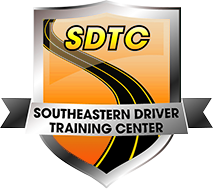Every driver has heard about the dangers of speeding. Many of us have even seen first hand the consequences of speeding. So why do people continue to drive at unsafe speeds even though we’ve heard how dangerous it is? Usually it comes down to one of two reasons:
1) The driver is running late
or
2) The driver enjoys the thrill of speeding
Most drivers who exceed safe speeds develop a false sense of confidence and don’t believe they will ever become involved in a speed related crash. However, as a former traffic crash reconstructionist, I know that it only takes one bad day, one moment, to completely change everything.
Here are some facts about speeding I learned from investigating crashes for several years.
1) Roughly 1/4 of highway death are attributed to speed
2) The faster a vehicle is traveling, the more likely the occupants of that vehicle (or the car(s) they impact) are to be injured or killed
3) Going the speed limit versus exceeding the speed limit can make a big difference. (Example: If a driver is traveling 45 mph in a 45 mph speed zone when a hazard emerges ahead, that vehicle will travel roughly 50 feet before the driver can move his foot from the accelerator to the brake. If a driver is traveling 60 mph in a 45 mph speed zone when a hazard emerges ahead that vehicle will travel roughly 66 feet before the driver can transition from the accelerator to the brake. That’s a difference of 16 feet and 16 feet can make the difference between stopping and not stopping.)
If you’re guilty of having a “heavy foot” here are some tips to avoid speeding:
1) Leave early. This will reduce the need and desire to exceed the speed limit to make it to your destination
2) Remember the big picture. Don’t get caught up in the moment or thrill of speeding. Instead remember that it only takes one crash to completely change everything and end someone’s life.
3) Speeding doesn’t really save that much time. In towns riddled with stop lights and traffic, speeding usually doesn’t even save much time. In fact it’s more likely to slow you down in the event you’re stopped by law enforcement or become involved in a crash.
Bottom line, speeding on public roads isn’t a risk that’s worth taking. Speeding tickets require a lot of time and are often expensive. It’s certainly not worth it when you consider the risk of injuring or killing someone. So, be patient out there and keep an eye on your speed.
Joe Fitzgerald
Owner/Operator
Southeastern Driver Training Center
910-899-9101
